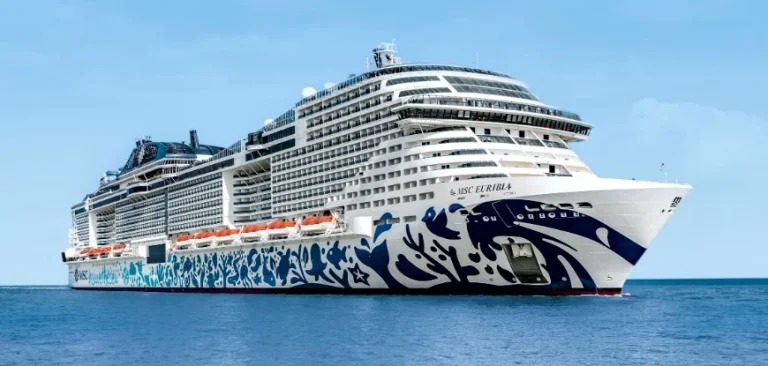As part of the next phase of its shore power plan, the MSC Group cruise division will use shoreside electricity at 15 new ports between 2024 and 2026 to support the decarbonization of fleet operations.
The plan will see the addition of five Italian ports as well as Barcelona and Valencia in Spain, Stavanger and Norfjordied in Norway, Miama in Florida, Copenhagen in Denmark, Marseille in France, Rotterdam in the Netherlands, Valletta in Malta, and Stockholm in Sweden.
Vessels operating under MSC Cruises and Explora Journeys will use shore power at further European and international ports when it is available.
Since February 2023, MSC Cruises has used shore power at the Port of Southampton in the UK and at the Port of Kristiansand in Norway. The company plans to test shore power facilities at the Norwegian port of Haugesund in late summer 2023 with additional trials scheduled to take place this year in Bergen and Alesund in Norway and Warnemunde in Germany. Shore power will be used by MSC Cruises vessels in the German ports of Hamburg this winter and in Kiel from summer 2024.
Shore power capability has been installed on all the company’s new-builds since 2017 and retrofits have been carried out on other vessels. Currently, 67% of MSC Cruises total capacity is fitted with shoreside power technology. The company plans to retrofit more ships as shore power becomes available on their service routes.
All Explora Journeys vessels will feature shore power capabilities, with the first ship –the Explora I – entering service on July 17, 2023.
“Shore power is an important factor on our journey toward net-zero greenhouse gas (GHG) operations,” explained Linden Coppell, vice president of sustainability and ESG, MSC Cruises. “All of our new-builds since 2017 are equipped with the ability to plug into local power grids and we are rolling out retrofits on the other vessels in our fleet. Our shore power plan actively demonstrates our ambition and that we are fully committed to reduce emissions from our ships, including while in ports.
“By making major reductions to emissions in ports, we are fulfilling our responsibility to the ports and coastal communities that our ships visit and serve. Together with the use of LNG fuel, improving energy efficiency, utilizing innovative wastewater treatment and waste recycling, we are making positive strides in playing our part to address climate change and protect ocean biodiversity.”



